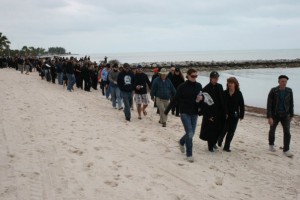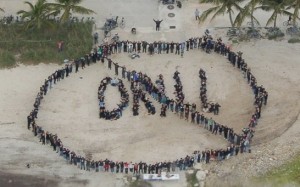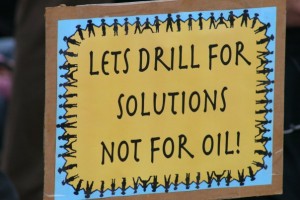http://www.theolympian.com/649/story/1144607.html
The Olympian By JOSH HAFENBRACK | Sun Sentinel * Published February 19, 2010
TALLAHASSEE, Fla. – By now, the arguments are well rehearsed. Offshore oil drilling is either a dangerous gamble with Florida’s beach-driven tourism industry, or a potential job creation and tax windfall.
Either way, an emotional and politically charged drilling debate is taking shape in the state Capitol, a slow-moving political drama that is likely to unfold over the next two years on whether to allow oil drilling in the Gulf of Mexico, three to 10 miles from Florida’s West Coast beaches.
Republican legislative leaders are holding hearings and producing reports on the economic and environmental impacts of offshore oil and natural gas exploration. Even supporters say the drill bill is unlikely to become law this year, with lawmakers skittish about the 2010 election, gas under $3 a gallon and a reluctant state Senate taking a go-slow approach to the issue.
But the subtext is clear: With more drilling-friendly leadership taking over the House and Senate this November, the legislative session that starts March 2 could lay the groundwork for allowing oil rigs to set up off Florida’s Gulf Coast.
After the November elections, staunch drilling advocates state Rep. Dean Cannon and state Sen. Mike Haridopolos, both Republicans, will take over as powerful presiding officers in their respective chambers.
Republican Gov. Charlie Crist, who once was against drilling, has been open to the idea but hasn’t made it a central part of his legislative platform.
“I think we’ll lay the predicate this year for next year,” said Barney Bishop, president of the Associated Industries of Florida, which is lobbying for offshore drilling.
Since 1990, Florida has banned exploration or drilling in its waters, which run from three miles to 10.3 miles off the Gulf Coast shoreline. Oilmen are lobbying to repeal that ban and authorize exploration in the Gulf, which is thought to be rich in oil and natural gas.
Atlantic Ocean waters off the South Florida coast would not be open to drilling. However, drilling critics argue that South Florida could see fewer tourists if people come to think of Florida beaches as oil production sites or if a West Coast oil spill gets national media attention.
Legislators won’t authorize drilling outright. Rather, they are seeking to lift the 1990 ban and leave the decision on whether to offer drilling leases to the state Cabinet, which is comprised of the governor, attorney general, chief financial officer and agriculture commissioner.
Supporters say drilling could create up to 20,000 jobs and bring billions in permitting and severance tax revenue over several decades. They note there hasn’t been a drilling-related oil spill in the United States since an incident off the California coast in 1969.
“The beaches is a moot issue,” said Bishop. “There hasn’t been a single drilling accident in 40 years.”
Opponents counter that revenue and job projections are inflated and could take a decade or more to materialize – and there’s no way to guarantee against a tourism-destroying oil spill. Even if the rigs are safe, a damaging spill could happen during a major hurricane or from a faulty pipeline, they note.
“Our view is, you can’t make it both safe and profitable,” said Eric Draper, a lobbyist for the Audubon Society.
The methodical approach legislators are taking this year is calculated to take away the argument that drill-bent Republicans are ramming through a sweetheart deal for the oil industry.
The results are dry, hours-long hearings in Tallahassee on the geological and practical aspects of drilling. More meetings are planned even before a bill is written. That’s a stark contrast to last year, when the House pushed through a drill bill in the last two weeks of session with little debate. The proposal stalled in the Senate.
“No one can say we didn’t have an in-depth discussion,” said Florida House Speaker Larry Cretul.
Democrat Rep. Keith Fitzgerald, who represents a coastal district in Sarasota, praised House Republicans for holding extensive hearings, but said he remained unconvinced that the financial benefits from drilling outweighed the risks.
“They’re not sweeping potential problems under the rug,” Fitzgerald said of legislative Republicans. Still, he said, “People have to decide – do the benefits outweigh the costs? I’m a long way from being convinced. If you look at where I live, the entire economy is based on the beach. Anything that might detract from that is very costly.”
Special thanks to Richard Charter


